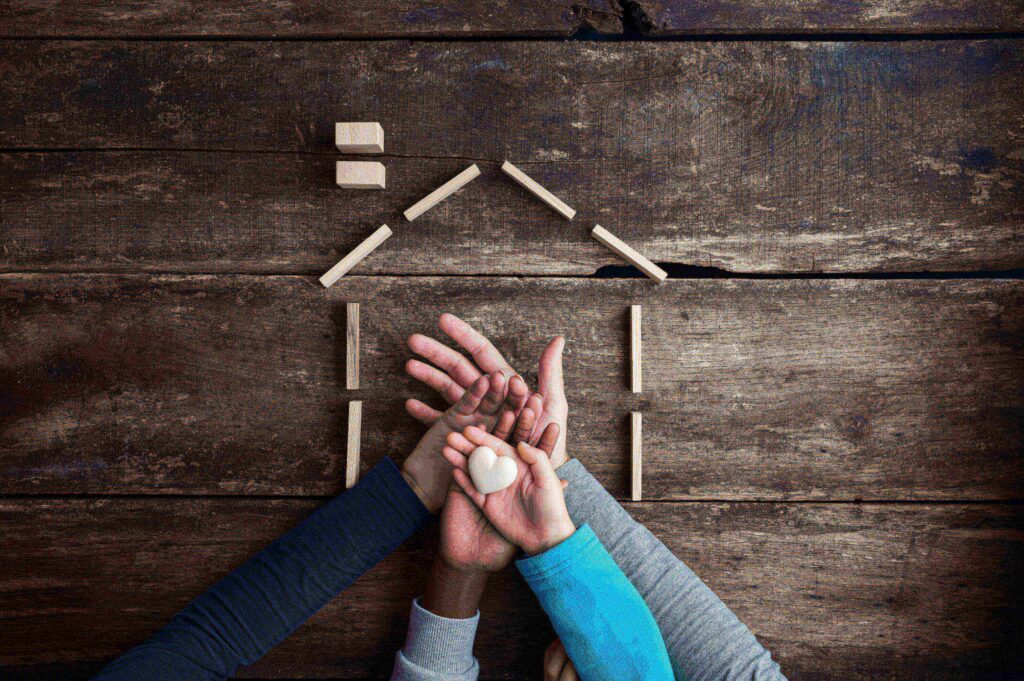By McKenzie VanLanen, Adoption and Pregnancy Support Case Manager of the Diocese of Green Bay
Adoption is full of love, hope, and new beginnings. Yet alongside that joy also comes grief for all members of the adoption triad: birth parents, adoptees and adoptive parents. When we talk about adoption, grief is not often discussed. However, it is a real and present part of the process for everyone involved. What better time to bring awareness to this than National Adoption Month?
Bringing awareness to a topic allows people the space to discuss their experiences openly, creating opportunities to feel less alone and more supported.
Below is a closer look at how grief may appear for each member of the adoption triad, though experiences vary greatly and are unique for each individual.

Birth Parents
There are many misconceptions about what birth parents experience. In reality, birth parents make a loving and selfless decision to place their child with a family they believe can provide everything they have dreamed of for that child.
Even when the decision is theirs (in private adoption), birth parents often go through a lifelong grieving process. They may experience sadness, guilt, or shame. These feelings commonly surface during milestones and holidays, but also in everyday moments.
Even if they trust that adoption is the best choice for their child, they still grieve just as deeply. Their grief is often less socially recognized, also known as disenfranchised grief. All members of the adoption triad can experience disenfranchised grief.
When birth parents can open up to others about their feelings and experiences, it can reduce shame and create space for healing, allowing them to live up to their full potential.
Adoptees
Society often expects adoptees to be grateful that they have been adopted. While gratitude may be true for them, adoption is much more complex. Even when adoptees are raised in loving homes with their adoptive families, they experience immediate grief and loss when separated from their birth families.
Grief and loss can show up as questions of identity, belonging, or self-worth. Healing begins when adoptees are allowed to share their stories, express their feelings openly, and feel validated — recognizing that multiple feelings can exist at once, such as immense love for their adoptive parents and profound sadness that they were separated from their biological parents.
Children tend to blame themselves for adult choices, wondering, “Why was I not enough for my biological parents?” — even when that belief is not true.
As adults, it’s important to create opportunities for discussion. Adoptees may feel guilty bringing up the complex emotions of being adopted, as they don’t want to upset the parents they love. Open conversations can prevent children from creating their own narratives, which can happen if they are left to figure things out internally. It is also important for adoptive parents and adults to let adoptees know that they are capable of handling their feelings and that they will love them through the journey.
Adoptive Parents
Adoptive parents also go through a grief process in adoption. They may grieve a child who was not born biologically, a pregnancy loss, or infertility. Each of us has a reproductive story and a picture of what our family will look like. When it doesn’t go as expected, feelings of grief and loss can arise.
By acknowledging their own losses, adoptive parents become better able to help their adopted children with theirs. If they can make sense of their own stories, it’s less difficult to make sense of their children’s stories.
Adoptive parents may also grieve their inability to protect their adopted children from the pain they will experience. Acknowledging the varying feelings that come with adoption can help adoptive parents better support themselves so they can better support their adoptive children.
When we name grief and loss, we can help families heal, process their emotions, and navigate the ups and downs together. When we recognize that grief and loss can co-exist with love and happiness, people do not have to feel alone in their journey or believe they must feel only one way about adoption.
Adoption has many complexities, and all people have their own unique thoughts, feelings, and stories. They should be able to share their stories with confidence and be heard by others with compassion. Let’s be the people who allow everyone in the adoption triad the space to process, heal, and grow. Listening without judgment and accepting people for who they are uniquely created to be is one of the best gifts we can give.
To learn more about Catholic Charities Adoption and Pregnancy Support Services, please visit catholiccharitiesgb.org/our-services/adoption-and-pregnancy-support-services.
